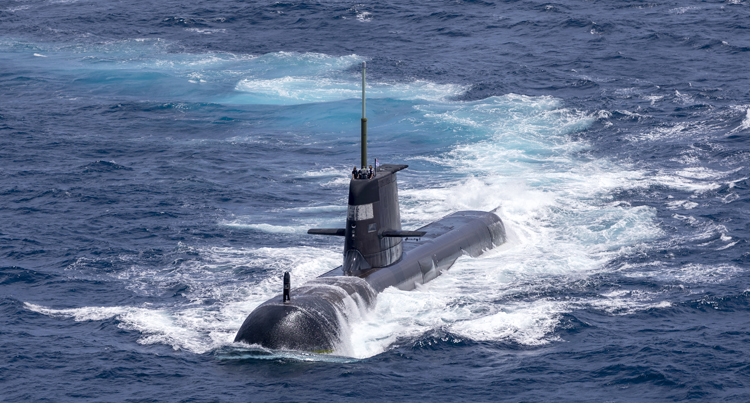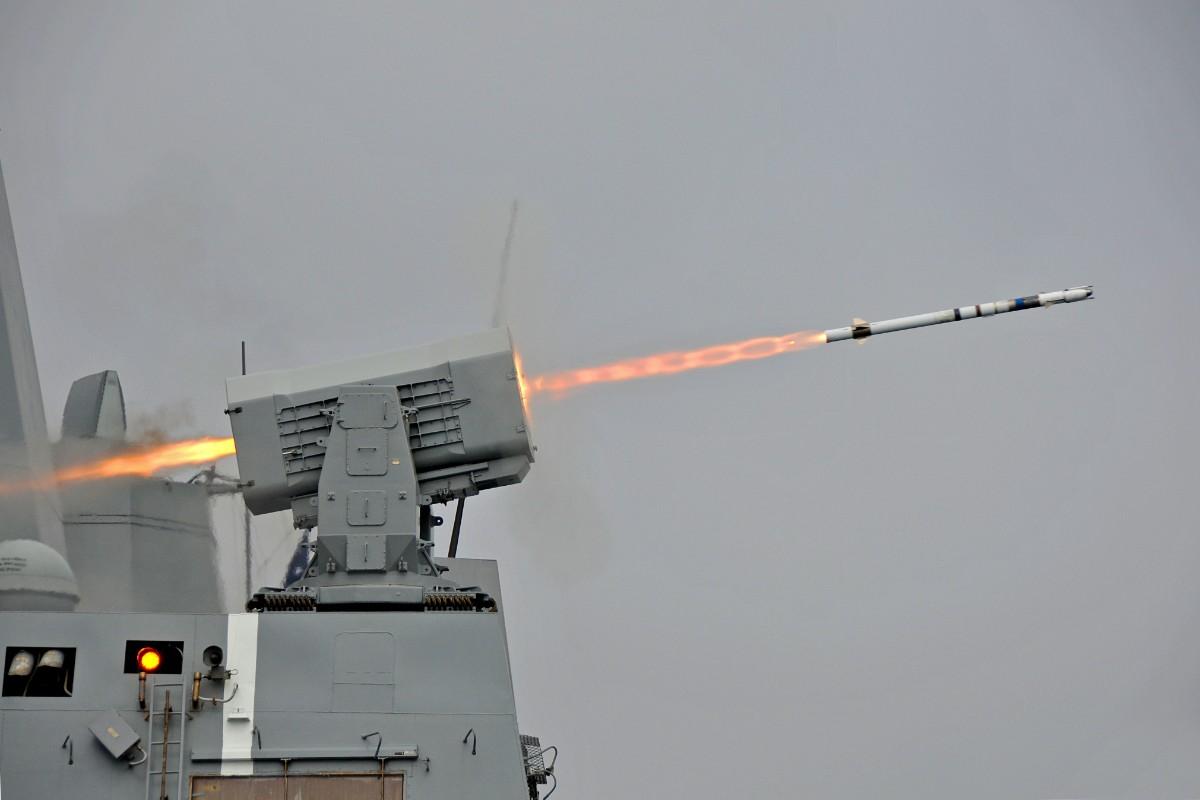AUKUS, a trilateral strategic pact, announced on 15 September 2021 between Australia, the US, and the UK in the Indo-Pacific region is seen as an endeavor to compete or strive against China. This landmark agreement will allow Australia to become the first non-nuclear state to be equipped with nuclear-powered submarines using technology provided by the United States. The deal is considered one of the countries’ largest defense partnerships in decades, as it will include artificial intelligence, cybersecurity tools, and other technologies, in addition to eight nuclear submarines. It should be noted that these nuclear-powered submarines cannot fire nuclear missiles because their nuclear technology will be used to propel submarines that are faster and more difficult to detect than conventional ships. They can stay submerged for months, launch long-range missiles, and carry more supplies. Australia will only become the seventh state in the world to manipulate nuclear-powered submarines after the US, UK, France, China, Russia, and India and the third in the indo-pacific region after China and India. After 50 years, the US is sharing its nuclear-powered submarine technologies. It had previously shared its technology with the UK. Having these submarines stationed in Australia will be important for the US in the Indo-Pacific region.
A strong reaction came not only from the major adversaries, which was very much natural, but also from the allies, creating serious consequences for the member states. The allies like France, ASEAN states, India, and even the five eyes member New Zealand have serious concerns about the member’s states. But here our major focus is on regional actors, their reactions, and the overall consequences which will it have on the region’s peace and stability in the future.
The first and foremost major factor which is considered to be the reason behind this strategic partnership, as the US has already declared openly the policy of its containment, is China. China officially declared the agreement as an extremely irresponsible alliance. According to the Chinese foreign ministry spokesperson, “the agreement seriously undermines the regional peace and stability and it will intensify the arms race”. The Chinese embassy in Washington accused the countries of a cold war mentality and ideological prejudice. This Chinese nervousness will create much more tension in the region particularly in the South China Sea. Since Chinese said that it will trigger an arms race in the region so it may be possible that China might likely to advance its nuclear weapons capability by fearing that Australia might also acquire nuclear weapons, as it is reported that the submarines will be powered by high enriched uranium and therefore it would make Australia much closer to develop a nuclear weapon if it desires to do so and it might have a domino effect.
Similarly, the three-way deal agitated the association of Southeast Asian’s ten states. The arrival of AUKUS underscores the fact that non-regional powers are seeking deviant options outside the ASEAN-led multilateral framework. The ASEAN shows a mingling reaction toward the tripartite agreement. Indonesia and Malaysia have expressed mild concerns that the agreement is likely to create an arms race and nuclear proliferation in the region and also it might provoke some countries to act aggressively, especially in the South China Sea. In raising these concerns, Malaysian Prime Minister Ismail Sabri Yaakob stressed Malaysia’s commitment to Southeast Asia as a Zone of Peace, Freedom, and Neutrality (ZOPFAN) and the Southeast Asia nuclear weapons Free Zone (SEANFWZ), as well as Malaysia’s stance on not allowing nuclear-powered submarines to enter its territorial waters. Jakarta is also “deeply concerned” about the “arms race and power projection in the region.” Indonesia urges Australia to fulfill its nuclear nonproliferation obligations and urges Canberra to maintain its commitment to regional peace and security in accordance with the Southeast Asia’s Treaty of Amity and Cooperation (TAC).
However, it is clear that Indonesia’s fear of “continuing the arms race and power projection” refers not only to the three AUKUS partners but also to all the regional states, including China. The Philippines, Singapore, and Vietnam, on the other hand, are not too unduly anxious about new developments. They are of the opinion that the greater role of Australia in the region will promote peace and stability. So, ASEAN has mixed reactions about AUKUS which will create a dilemma for its centrality, indeed, the animosity between China and the United States has made it increasingly clear that China and the United States while reiterating the importance of ASEAN centralism, use such repetition to attract the 10-member group to their respective sides, whether it is the China-centric Belt and Road Initiative or the US FOIP.
The tripartite deal has also produced an uncertain situation for QUAD in general and India in particular. Some scholars say that the US is not very happy with its members, as it lacks a proactive strategy against china or simply the US has not complete trust in QUAD allies. So, the future of it seems to be uncertain in the sense that it apparently seems that it is no longer the top priority of the Biden’s administration though Biden was the first president of the US who proposed the first summit of the member’s states this AUKUS has overshadowed the strategic significance and role of QUAD in the Asia-Pacific region. Also, the main actor of the QUAD in the region, India, will lose its monopoly, as it is the only one with nuclear-powered submarines in the Indian Ocean Region secondly it also felt uneasy as it was not consulted about such significant development in the Indo-Pacific region. However, the time will tell whether US keeps a balance between the QUAD and AUKUS or it shifts its focus toward the new strategic partnership.
AUKUS will obviously create a ruckus in the region. In terms of non-proliferation, the agreement will ease pressure on Iran. Iran may claim and it has been claiming since then that if Australia can be trustable with such high enriched uranium technology, then why not Iran can be, though Iran is not having any ambition to develop nuclear weapons and it is also a signatory of the NPT then why the world community pressurized and sanctioned it so much. The deal may also cause a domino effect in the case of nuclear weaponization. Similarly, it will trigger an arms race in the region since China has already shown concerns about it. So AUKUS may intensify the Sino-US rivalry in the region and may cause a roadway to the new cold war era’s arms race and can create instability in the region.
Author:
Hikmat Ullah studies International Relations at National University of Modern Languages, Islamabad.
- Global Defense Insighthttps://defensetalks.com/author/umair/
- Global Defense Insighthttps://defensetalks.com/author/umair/
- Global Defense Insighthttps://defensetalks.com/author/umair/
- Global Defense Insighthttps://defensetalks.com/author/umair/













